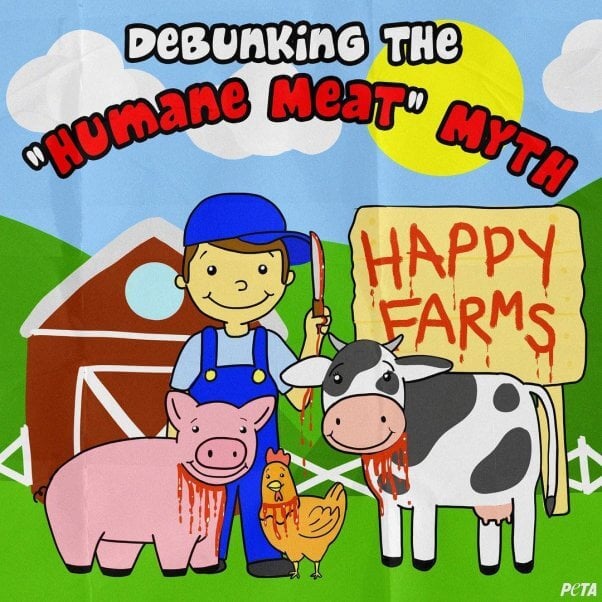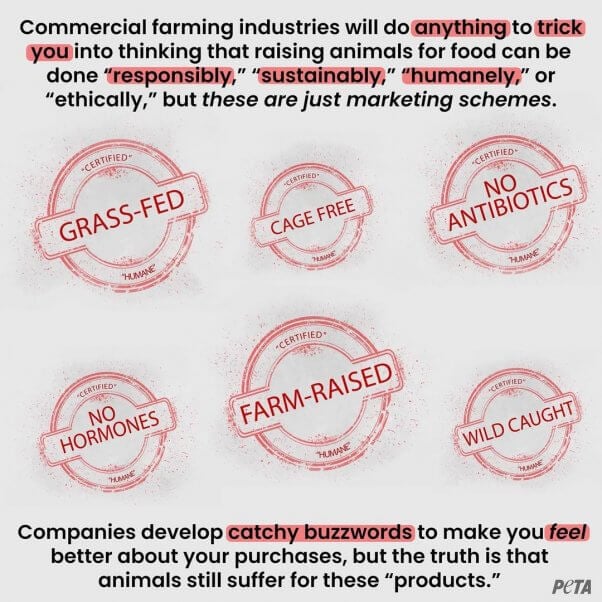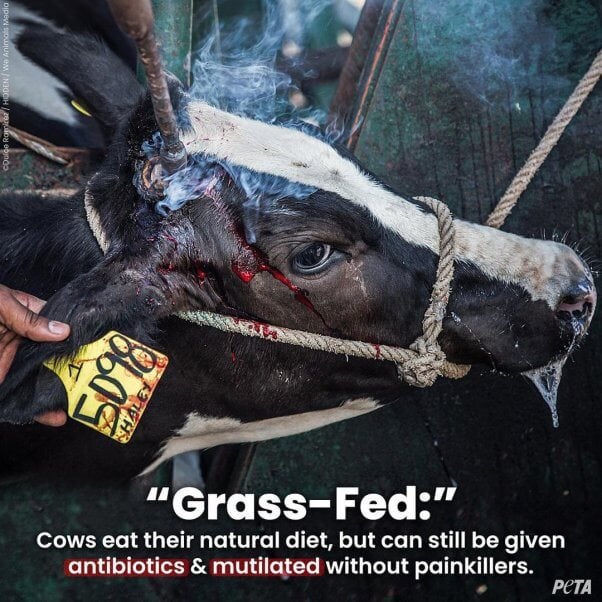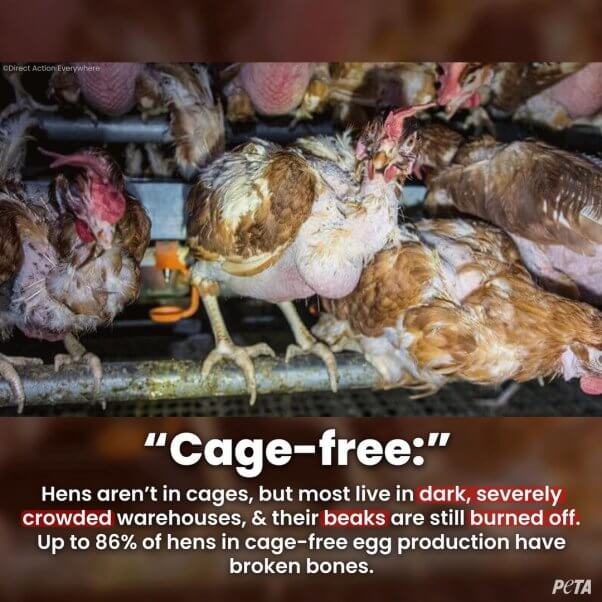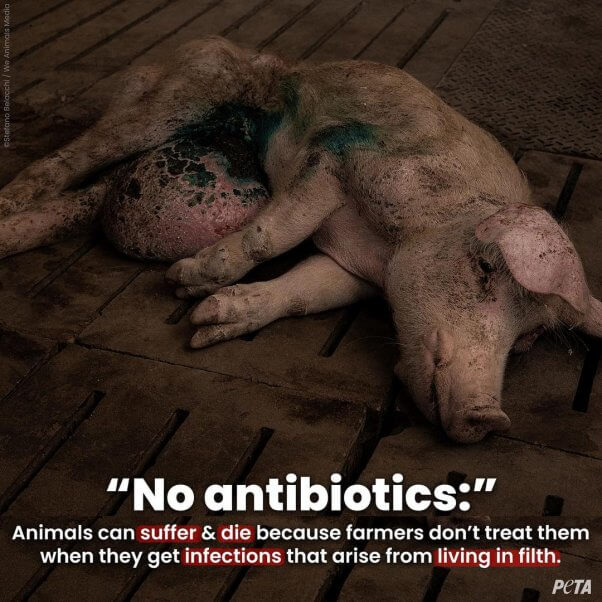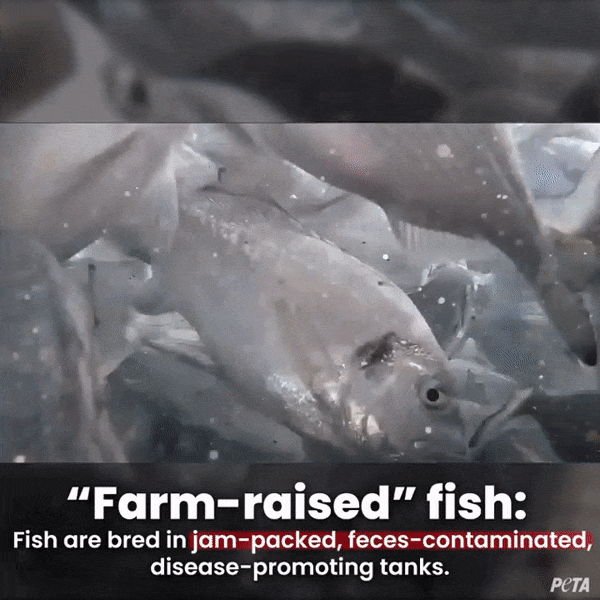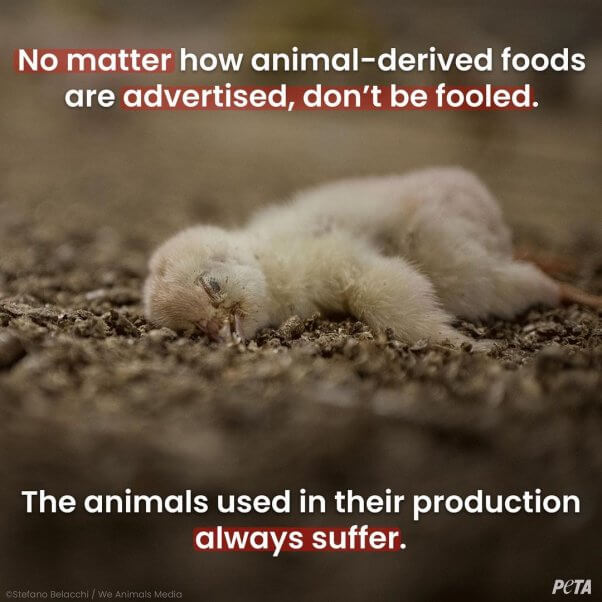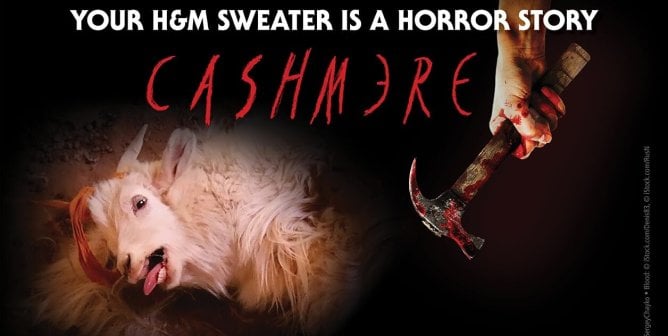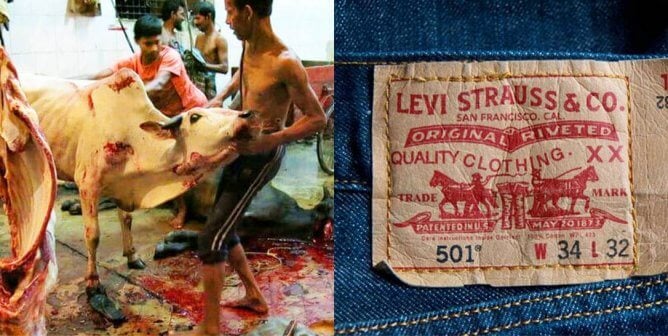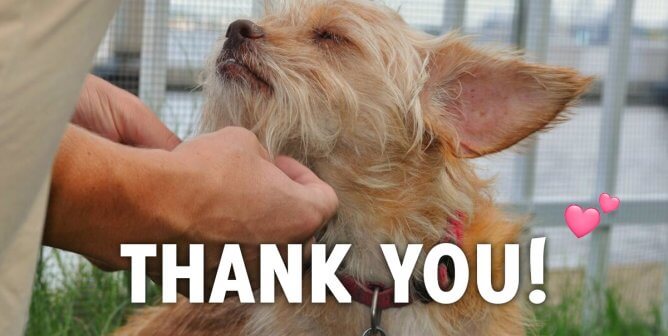These ‘Humane’ Labels Are Lying to You—Here’s What They Really Mean
When you receive a call about your vehicle’s extended warranty, you likely hang up without paying a dime—you know it’s a trick. However, shoppers often don’t apply the same kind of thought when at the grocery store. Unfortunately, much like a suspicious call offering a deal that’s too good to be true, “humane” and “sustainable” labels on animal-derived foods are deceptive.
Instead of selling delicious vegan foods that are truly humane, many companies simply slap misleading labels touting compassion on the same types of cruelly sourced products that they’ve sold for decades. This is known as “humane-washing,” and it’s a marketing ploy that makes consumers believe that they’re making kind choices when they’re actually not. Here, we’ll break down what these deceptive labels really mean.
‘Grass-Fed’ Cows
- The U.S. Department of Agriculture doesn’t verify the accuracy of producers’ claims, so it’s nearly impossible to know what the cows really ate.
- “Grass-fed” cows are still subjected to mutilations without painkillers—hot irons are pressed into their skin, and their sensitive horns are burned off.
- Farmers and ranchers may clear vast acres of land filled with natural plant life in order to graze cows, which kills wildlife and causes erosion.
‘Cage-Free’ Chickens and Eggs
- Hens used in the egg industry live in dark, severely crowded warehouses.
- The tips of chicks’ beaks are commonly burned off.
- Up to 86% of hens used in cage-free egg production have broken bones.
- All male chicks are killed—often ground up or thrown into the trash to suffocate—because they’re considered useless by the egg industry.
What if Animals Raised With ‘No Antibiotics’ Get Sick?
- Producers can use this label as long as they provide “sufficient evidence” that the animals were raised without antibiotics.
- More animals can suffer and die because farmers don’t treat them when they get infections, in order to keep the deceptive label.
Which Animals on Farms Are Raised With ‘No Hormones’?
This label applies only to the flesh and milk of cows. It’s illegal to give hormones to chickens, pigs, and turkeys, so any company advertising hormone-free products from these animals isn’t doing any extra work. If you look closely, you should find a stamp reading, “Federal regulations prohibit the use of hormones.” Essentially, this is the equivalent of marketing zero-calorie water but with cruelty to animals thrown into the mix.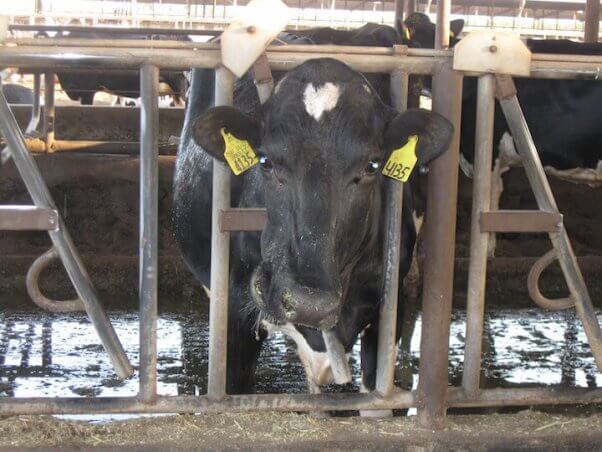
Is Eating ‘Farm-Raised’ Fish Better for Animals and the Environment?
- Fish are bred in packed, feces-contaminated, disease-promoting tanks.
- “Aquafarms” can discharge waste, pesticides, and other chemicals into natural ecosystems.
- Many fish raised on these farms are predators, such as salmon and shrimp. This means that for every pound of farmed fish, 5 pounds of fish from the ocean are required as feed.
What Does ‘Wild-Caught’ Mean?
- Along with the trillions of fish caught in the sea, thousands of whales, dolphins, and turtles are caught and killed in fishing gear each year.
- 90% of the populations of large fish species have been decimated because of the fishing industry.
- Trash from fishing vessels makes up a huge amount of plastic in the ocean, killing even more sea animals.
- The gills of fish who make it on deck alive are cut, and the animals either die from blood loss or are tossed onto ice to freeze or suffocate slowly.
- For more information on the impact of fishing on the climate crisis, watch Seaspiracy on Netflix.
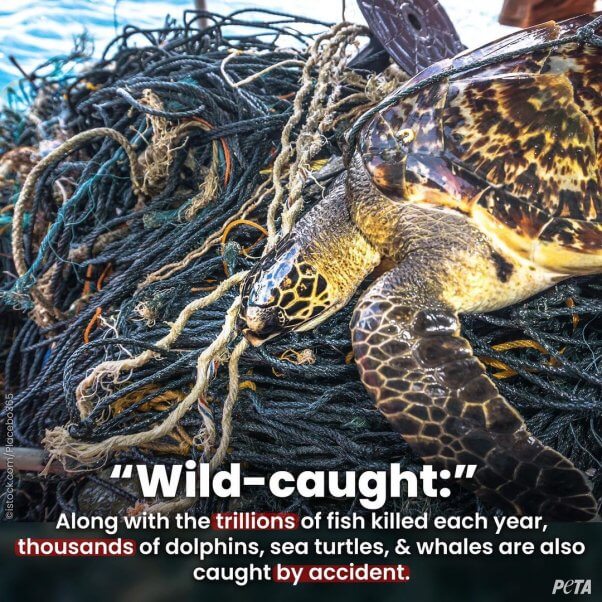
Buyer Beware: There’s No Such Thing as ‘Humane Meat’
No matter how animal-derived foods are advertised, don’t be fooled: When animals are used for profit, they always suffer.
Exploiting animals for food—like eggs and cow’s milk—leads to harm, suffering, and death. If you really care about animals, the environment, and your health, there’s only one animal-friendly label you should look for: “Vegan.”

